
All categories
Featured selections
Trade Assurance
Buyer Central
Help Center
Get the app
Become a supplier

(3305 products available)















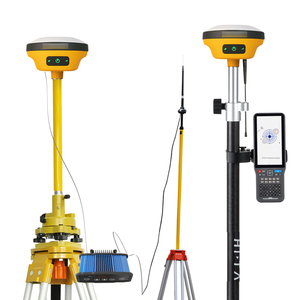
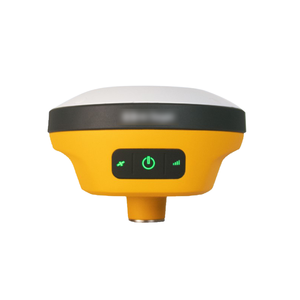
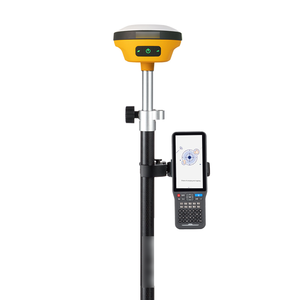
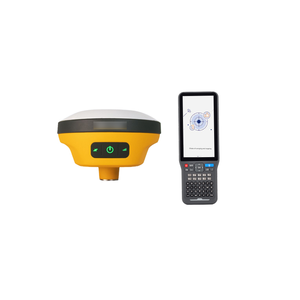
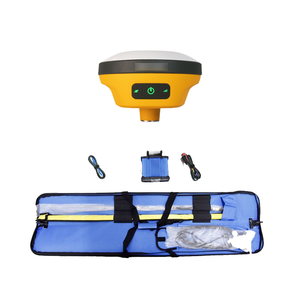
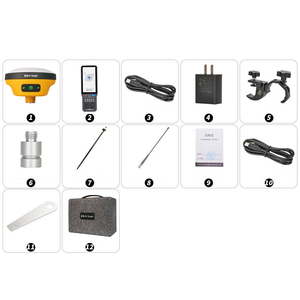

























There are various kinds of global positioning system signal detectors, each with unique characteristics used for different purposes. The following are some ordinary types of GPS signal detectors:
These compact devices are designed to be portable. They can be used by anyone, such as law enforcement, military personnel, and outdoor adventurers. They help users find the GPS satellites overhead and ascertain their precise location on the map. Most handheld models have a simple interface and provide basic GPS tracking capabilities, making them good for outdoor activities or fieldwork.
These devices focus on discovering illegal jamming signals. GPS jammers are often tiny devices' owners who want to avoid tracking. Such workplaces may not want their employees to use tracking devices. That is why they use jamming devices. Even though jamming is illegal in many countries, a jamming detector can help locate illegal signals and cut off such signals. Most janitors are portable and can detect several jamming signals simultaneously.
These detectors are characterized by their being installed in vehicles. This means they do not have to be handheld or made portable. They assist in locating GPS signals used for vehicle tracking or monitoring. Many are equipped with real-time tracking features and can be connected to smartphones so alerts can be received through the phones. These are very convenient and useful for fleet tracking and vehicle monitoring.
Covert detectors are designed for undercover operations. They allow users to stealthily detect GPS signals without attracting attention. These devices are often compact, easy to hide, and sometimes fitted into everyday items like sunglasses or pens. Law enforcement agencies and private investigators usually use them to track surveillance or locate unauthorized tracking devices.
These detectors are designed to identify the GPS signals that may be transmitted over cellular networks. With the increased use of smartphones and IoT devices, having a cellular GPS signal detector has become quite handy. These devices help users track the location of cellular-enabled gadgets and ensure real-time tracking and monitoring. They are also useful for businesses managing fleets of vehicles or assets to monitor their whereabouts constantly.
Choosing the appropriate global positioning system detector for sale will depend on several factors, including its intended use, accuracy, and other important features. Below are some of these important things to consider:
Advanced GPS signal detectors are crucial for various industries, ensuring effective operations and enhanced policymaking. The following are some industries that use satellite detectors:
In this sector, global positioning system detectors optimize fleet management. They track vehicles in real-time, enhance delivery speed, and reduce operational costs. By monitoring driver behavior and analyzing travel patterns, companies can improve efficiency. This results in decreased fuel consumption and better resource allocation. Overall, the application of GPS detectors leads to improved customer satisfaction through timely deliveries and enhanced safety for drivers and vehicles.
The agriculture industry has also begun utilizing GPS technology to make precision agriculture possible. Farmers use global positioning system detectors on their farm equipment to apply fertilizers, herbicides, and pesticides more accurately. This reduces waste and environmental impact. They also use it to monitor crop yields in real time to optimize farm management. Overall, it enables better field mapping, resource allocation, and increased crop productivity, ultimately leading to more sustainable farming practices.
Emergency response agencies use GPS detectors for timely interventions, effective resource deployment, and route optimization. They can locate incidents more accurately and dispatch the closest available units. It decreases response times and saves lives. Global positioning system detectors also help agencies analyze historical data on response times and resource allocation. It can lead to improved emergency preparedness and strategy planning.
The construction industry is using global positioning system detectors for key project activities, including site surveying, machinery, and excavation, to ensure precise placement of structures. It helps manage heavy equipment. Construction managers can track their activities, optimize labor allocation, and minimize project delays.
This reduces costs and increases project efficiency. The tracking of employees' locations also improves worker safety through real-time monitoring. Overall, the use of GPS technology leads to better project management and outcomes in both large-scale and small-scale construction projects.
In the mining industry, advanced satellite detectors optimize exploration and extraction processes. They provide real-time positioning for heavy machinery. This increases operational efficiency and decreases the risk of accidents. By accurately mapping mineral deposits, mining companies can improve resource utilization and reduce waste. It also minimizes the environmental impact by optimizing transportation routes and reducing emissions. Overall, GPS technology improves safety and supports sustainable mining practices that do not harm the environment.
The huge variation in the installation process of GPS detectors calls for different methods. These methods are based on the type of detector being installed. Here are the three main types of GPS detectors and how one installs each of them:
GPS jammers and detectors are very important elements that need proper maintenance. In general, the maintenance of different GPS devices is based on common activities. Here are some maintenance tips for a few common GPS detectors:
It generally depends on the type of GPS detector that is being installed. Vehicle-mounted GPS detectors are easier to install. They can be plugged into OBD ports or magnetically attached. Covert satnav jammers and detectors are normally hardwired. These are better left for professionals to handle. GPS trackers are simple tracking devices. Anyone with a little technical knowledge can track and manage them efficiently from various digital interfaces.
Yes, there are legal issues related to GPS signal detectors. Some of them may even have several covert and tracking functionalities. These detectors have to be handled carefully and used only for legal purposes like personal protection or asset management. Tracking without consent is illegal in many jurisdictions. This can lead to serious criminal prosecution and civil lawsuits. Always consult local laws and regulations before using GPS signal detectors, especially for covert tracking or surveillance activities.
Line of sight and other environmental factors affect how far a GPS satellite signal detector can read a signal. A vast majority of consumer GPS detectors can track signals from several hundred feet up to a few miles. Professional-grade detectors can extend this range to several miles, depending on their power and sensitivity. Urban structures, dense foliage, and weather conditions can interfere with signal reception.
Most GPS signal detectors do not work inside buildings because the signals are weak. The signals may not even penetrate through the walls, especially if they have been reinforced with metal. However, some have indoor positioning technologies. These use other signals, like Wi-Fi or cellular networks, to determine the position of a person indoors.
Properly installed and maintained detectors will not cause any harm to the vehicles in which they are installed. Vehicle-mounted GPS detectors are designed to work seamlessly. They won't disrupt the vehicle's electrical systems or other electronic components, though hardwiring requires care. Always ensure the installation is done correctly. It will avoid potential issues with the vehicle's wiring or power system.